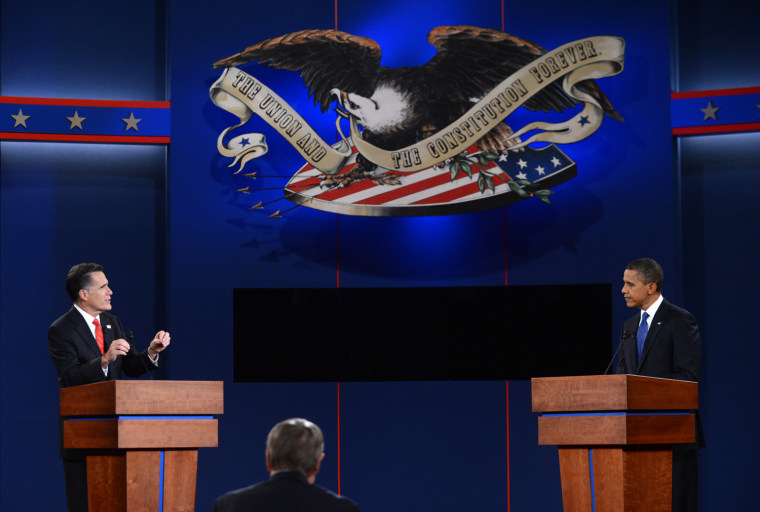It's well-known that a lot of business leaders aren't huge fans of President Barack Obama. But a few CEOs seem to have gone overboard recently by formally asking employees to vote for Obama's Republican opponent, Mitt Romney, and even threatening to lay off workers if Obama wins in November.
[]
David Siegel, CEO of the vacation real-estate firm Westgate Properties, recently sent an e-mail to employees saying their jobs will be in danger if Obama wins another four years. Arthur Allen, CEO of ASG Software Solutions, sent his workers an e-mail saying that an Obama victory could threaten ASG's independence and generate unspecified "fallout."
Koch Industries, run by conservative billionaires and Romney supporters Charles and David Koch, recently sent thousands of employees a "voter information packet" listing dozens of Republican candidates, including Romney, that Koch favors. If Obama were to win, a letter in the packet declared, "many of our more than 50,000 U.S. employees and contractors may suffer the consequences, including higher gasoline prices, runaway inflation, and other ills."
Civil libertarians are outraged by the implied coercion of voters, but workers probably don't need to worry about bosses everywhere starting to shake down their employees for votes. In general, it's a dumb idea for CEOs to take a strident political stance, especially if they try to impose their views on the people who work for them.
[]
It's worth pointing out that the handful of CEOs who have encouraged their workers to vote for Romney all run private companies, with no public shareholders to worry about. Most public companies, by contrast, assiduously steer clear of public statements that might offend any particular group. Target got snared in an unwanted political mess in 2010 when it donated $150,000 to help support a conservative Republican candidate in Minnesota who was a strong opponent of gay rights. Although Target said it was supporting the candidate because of his business policies, an embarrassing boycott ensued — hardly the sort of development that helps boost sales or the CEO's bonus.
A lot of people work for privately owned firms, and some business owners clearly feel that Obama's policies are bad for business. But there's considerable evidence that they're wrong. The most obvious is the stock market, which has soared by more than 70 percent since Obama took office. Though he wants to raise taxes on the wealthy, Obama has actually cut taxes while in office, with the federal income tax burden at historic lows. And monetary policy under the Federal Reserve and its chairman, Ben Bernanke — whom Obama appointed to a second term in 2010 — have been so friendly toward business that some critics feel ordinary people are the only ones who haven't been bailed out by the Fed.
Business owners worry, of course, about the possibility of rising taxes, along with fees and red tape associated with Obama's new health reforms and other regulations. They're equally worried about weak sales, however, according to surveys conducted by the National Federation of Independent Business, an anti-Obama trade group. And concern over sales has gradually declined since the end of 2009, a sign that some businesses have been doing better under Obama.
[]
In reality, the difference between an Obama or Romney victory may not be nearly as great as a few nervous CEOs seem to think. Investing firm UBS recently analyzed the implications of various election outcomes, and found that a Romney victory would probably generate a short-term stock market rally, reflecting investor optimism about Romney's business-friendly policies. But that could be offset by anxiety over whether Romney would appoint a new Fed chairman in 2014 who's less "dovish," or inclined to stimulate the economy, than Bernanke. A hawk at the helm of the Fed might be more determined to raise interest rates and end quantitative easing, which have generally been credited with a rebound in the stock market and easy access to cheap capital by big firms.
Besides, the biggest political factor likely to affect most business after the election is whether Congress deals effectively with a huge set of tax and spending decisions coming due, or fumbles it, sending the economy over the "fiscal cliff." In almost any scenario, that will require bipartisan cooperation rather than political warfare. If concerned CEOs really wanted to foster a strong economic environment, they'd encourage their workers to vote for candidates inclined to make deals for the good of the nation, regardless of party.
Rick Newman is the author of Rebounders: How Winners Pivot From Setback To Success. Follow him on Twitter @rickjnewman.
